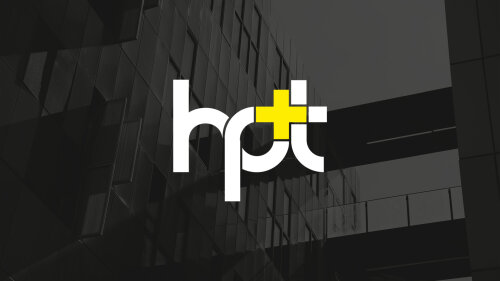Best Data Center & Digital Infrastructure Lawyers in Graz
Share your needs with us, get contacted by law firms.
Free. Takes 2 min.
List of the best lawyers in Graz, Austria
About Data Center & Digital Infrastructure Law in Graz, Austria
Data center and digital infrastructure law in Graz, Austria, addresses the unique legal needs that arise around the establishment, operation, and expansion of facilities that store, process, and transfer digital information. As Graz continues to evolve into a key technology hub in the Styria region, the demand for modern digital infrastructure, including data centers, fiber optic networks, and cloud service platforms, has grown rapidly. This has led to a complex regulatory landscape impacted by Austrian and European Union mandates concerning data protection, technical standards, zoning, environmental requirements, and cybersecurity. For companies and individuals involved in this sector, understanding these legal implications is essential for successful and compliant operations.
Why You May Need a Lawyer
Whether you are developing a new data center, managing cloud infrastructure, or planning to operate digital networks, several situations may arise where professional legal advice is critical. Common scenarios include:
- Drafting and reviewing contracts with service providers, utilities, and customers
- Navigating zoning permissions and building permits for new data centers
- Ensuring compliance with data protection regulations, including the EU General Data Protection Regulation (GDPR)
- Addressing cross-border data transfer issues
- Managing risks associated with cybersecurity and data breaches
- Handling mergers, acquisitions, or investments in digital infrastructure
- Dealing with employment law as it relates to IT professionals and technical staff
- Resolving disputes regarding service disruptions, outages, or contract breaches
- Facilitating power and connectivity agreements
- Managing environmental compliance and sustainability obligations
Engaging a lawyer with expertise in this field can help protect your business interests, ensure compliance, and prevent costly legal issues.
Local Laws Overview
Operating or investing in data centers and digital infrastructure in Graz, Austria, requires compliance with a combination of local, national, and European legal frameworks. Key aspects include:
- Data Protection: Adherence to GDPR is mandatory for all entities handling personal data. Additional Austrian laws may require specific measures to protect sensitive information.
- Zoning and Land Use: Building and operating data centers is subject to municipal zoning requirements, environmental impact assessments, and construction permits from local authorities in Graz.
- Connectivity Rights: Laws govern access to and development of telecommunications networks, including regulations around shared infrastructure and access to public utilities.
- Environmental Regulations: Operators must address energy use, cooling systems, emissions, and noise control in line with both national and EU environmental directives.
- Cybersecurity Laws: The Network and Information Systems Directive (NIS Directive) and Austrian Telecommunications Act establish standards for protecting critical digital infrastructure from cyber threats.
- Employment Law: Austrian labor regulations affect the hiring, training, and working conditions of personnel operating within digital infrastructure environments.
- Taxation: Investment in digital infrastructure may be influenced by specific Austrian and EU tax policies and incentives.
These areas are constantly evolving, making legal guidance essential for staying compliant and competitive in Graz's technology-driven environment.
Frequently Asked Questions
What are the main legal requirements for building a data center in Graz?
You must comply with local zoning laws, building codes, environmental regulations, and acquire the necessary construction and operating permits from the city of Graz. Data protection and cybersecurity standards must also be met from the outset.
Does GDPR apply to data centers operating in Graz?
Yes, the GDPR applies to all entities processing personal data in Austria, including data centers in Graz. Compliance includes ensuring data security, lawful processing, and responding to data subject requests.
Are there local environmental rules for data centers?
Yes. Graz enforces environmental standards regarding energy consumption, noise emissions, and waste management for data centers, in addition to Austrian and EU environmental directives.
Can I transfer data from a Graz-based data center to another country?
Cross-border data transfers are regulated by GDPR. Transfers within the EU are permitted, but transfers to non-EU countries require ensuring adequate data protection standards or using approved safeguards.
What contracts should I have in place for operating a data center?
Key contracts include property leases or purchase agreements, service level agreements with customers, utility and power supply contracts, employee contracts, and cybersecurity or compliance agreements.
What happens in the event of a data breach?
Operators must notify the Austrian Data Protection Authority and affected individuals in accordance with GDPR and local laws, and take remedial action. Failure to do so may result in serious penalties.
Do I need specific licenses for operating telecommunications or cloud infrastructure in Graz?
Depending on the type of services provided, specific registrations or licenses may be required under the Austrian Telecommunications Act or EU regulations.
Are there incentives for investing in digital infrastructure in Graz?
There may be regional and state-level grants, tax breaks, and incentives for projects that enhance digital infrastructure or employ environmentally efficient technologies. An attorney can help identify these opportunities.
What legal issues arise with third-party suppliers for data centers?
Issues include ensuring contractual clarity, managing liability, enforcing cybersecurity requirements, and setting service performance standards to avoid disputes.
Who oversees compliance in this sector in Graz?
Several authorities are relevant, including the Austrian Data Protection Authority, the Graz city government for zoning and permits, and regulatory bodies such as the Austrian Regulatory Authority for Broadcasting and Telecommunications (RTR).
Additional Resources
If you need more information or official guidance regarding data center and digital infrastructure law in Graz, consider reaching out to these entities:
- Stadt Graz (City of Graz): For local zoning, permits, and urban planning for data centers
- Austrian Data Protection Authority (Datenschutzbehörde): For questions on data protection and compliance
- Austrian Regulatory Authority for Broadcasting and Telecommunications (RTR): For telecommunications regulations and licensing
- Austrian Chamber of Commerce (WKO): For business and investment advice, including on digital infrastructure
- Austrian Federal Ministry for Climate Action, Environment, Energy, Mobility, Innovation and Technology (BMK): For policy, incentives, and environmental regulations
Next Steps
If you require legal assistance in the area of data center and digital infrastructure in Graz, start by gathering detailed information about your project or legal concern. Identify any relevant contracts, permits, or documentation and make a list of specific questions or challenges.
Look for a lawyer or law firm with proven experience in technology law, data protection, digital infrastructure, and local Austrian regulations. Arrange an initial consultation to review your needs, discuss compliance, and outline next steps. Legal experts can provide tailored guidance to help you structure your operations in line with current law, manage risks, and take advantage of local opportunities.
Remember, the digital infrastructure landscape is complex and fast-changing. Early involvement of a qualified legal professional can prevent issues before they arise, ensuring your business thrives in Graz’s modern and dynamic technology environment.
Lawzana helps you find the best lawyers and law firms in Graz through a curated and pre-screened list of qualified legal professionals. Our platform offers rankings and detailed profiles of attorneys and law firms, allowing you to compare based on practice areas, including Data Center & Digital Infrastructure, experience, and client feedback.
Each profile includes a description of the firm's areas of practice, client reviews, team members and partners, year of establishment, spoken languages, office locations, contact information, social media presence, and any published articles or resources. Most firms on our platform speak English and are experienced in both local and international legal matters.
Get a quote from top-rated law firms in Graz, Austria — quickly, securely, and without unnecessary hassle.
Disclaimer:
The information provided on this page is for general informational purposes only and does not constitute legal advice. While we strive to ensure the accuracy and relevance of the content, legal information may change over time, and interpretations of the law can vary. You should always consult with a qualified legal professional for advice specific to your situation.
We disclaim all liability for actions taken or not taken based on the content of this page. If you believe any information is incorrect or outdated, please contact us, and we will review and update it where appropriate.











